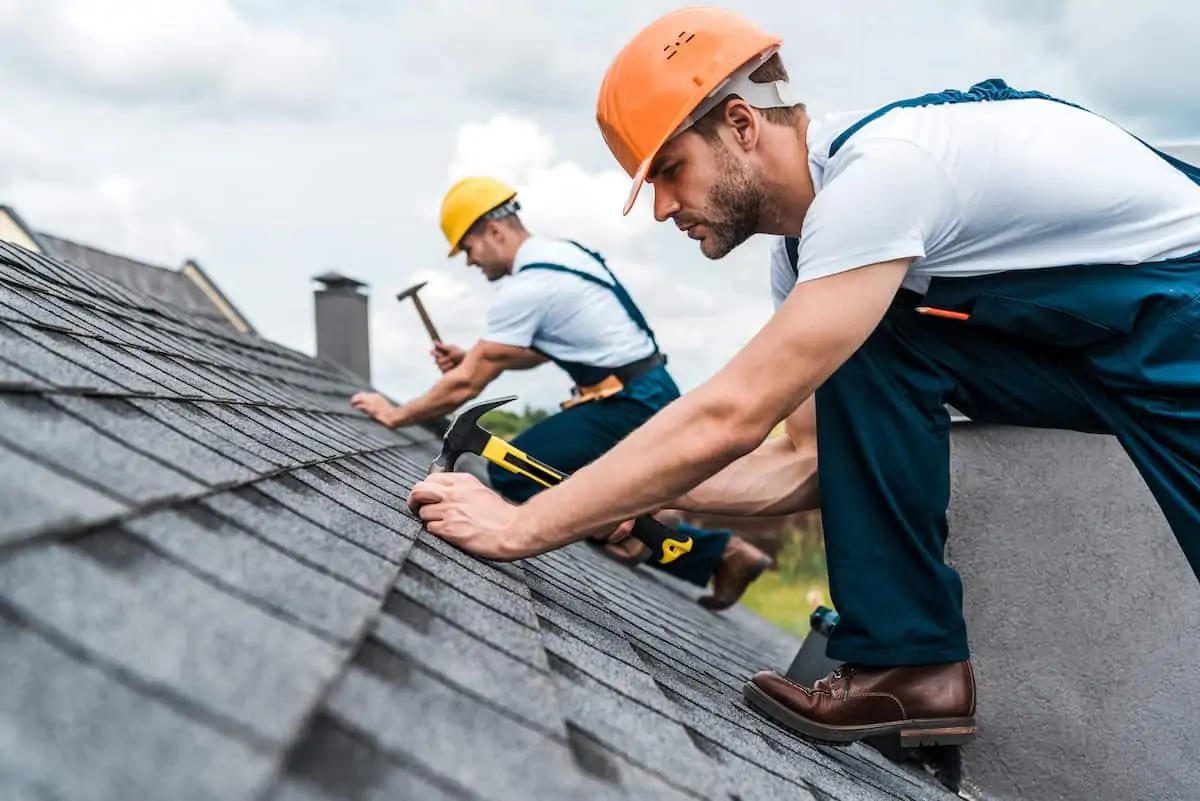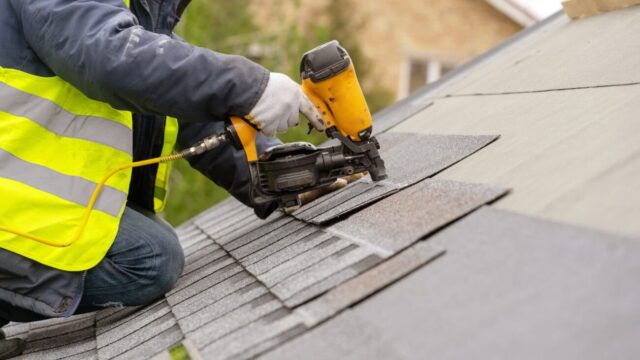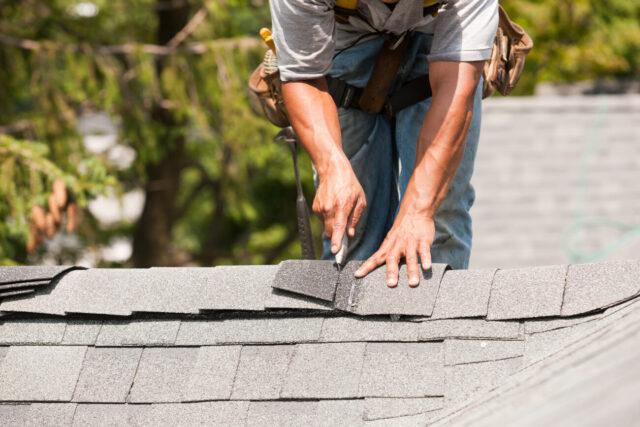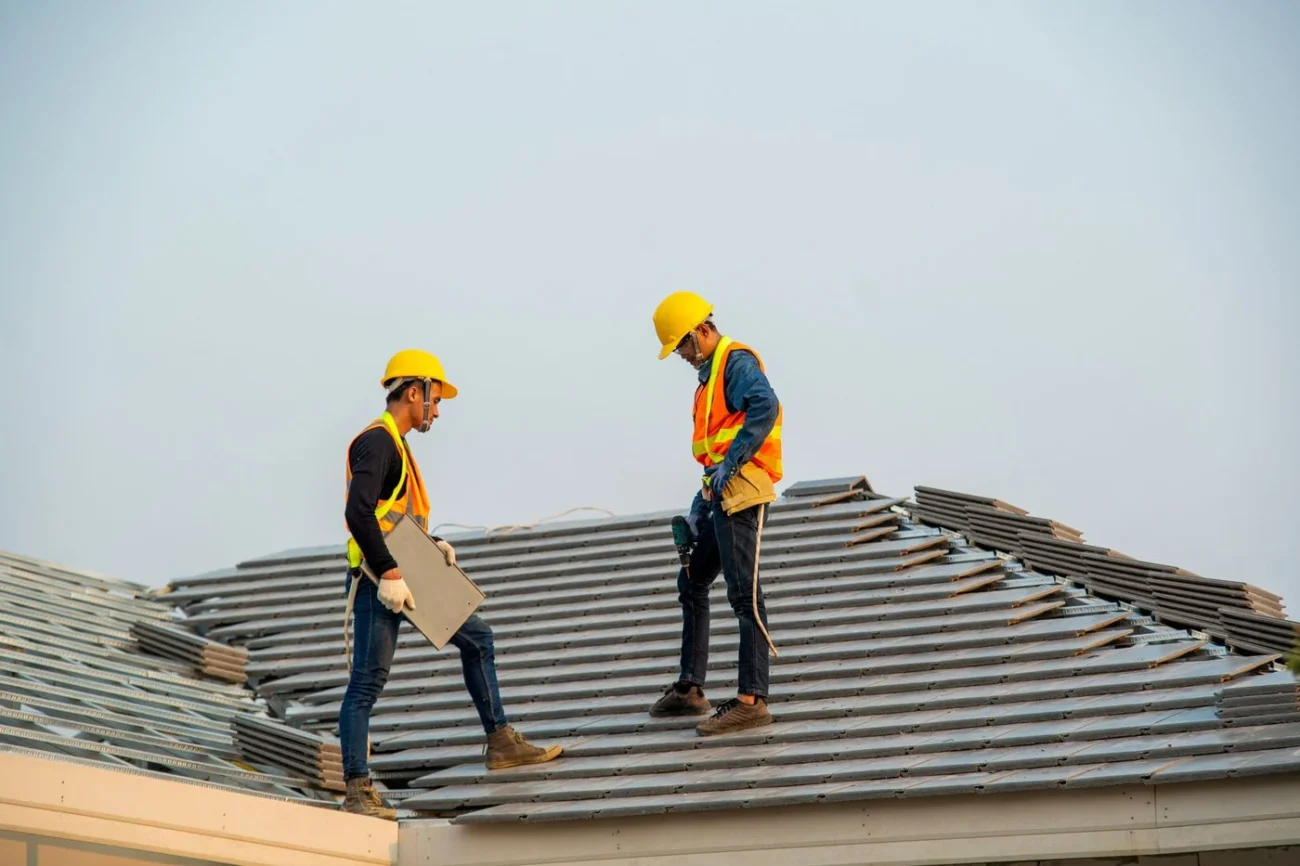
Your roof stands as one of your home’s most pivotal elements, providing paramount protection against the elements and playing a vital role in upholding your house’s structural integrity.
Over the years, roofs can develop issues that necessitate prompt attention.
However, the pivotal decision lies in whether to pursue roof repair or embark on a full roof replacement. This comprehensive guide aims to equip you with the knowledge needed to make a well-informed decision.
Roof Repair

Roof repair involves fixing specific issues or damage to your existing roof without completely replacing it. This is a cost-effective and less invasive option when the problems are localized and not too severe.
When to Choose Roof Repair
- Minor leaks ─ If you have small roof leaks in isolated areas, roof repair is often sufficient.
- Damaged shingles or tiles ─ Missing, cracked, or damaged shingles or tiles can be replaced individually.
- Hail or wind damage ─ If your roof has suffered damage from a recent storm but is otherwise in good condition, repairs may be adequate.
- Aging roof ─ If your roof is relatively young and the damage is minor, repairing specific areas can extend its lifespan.
- Budget constraints ─ Roof repair is generally more budget-friendly than a full replacement.
Benefits of Roof Repair
- Cost-effective
- Less disruptive
- Extends the life of your current roof
- Ideal for minor issues
Considerations for Roof Repair
- Roof condition ─ Ensure the rest of the roof is in good condition before opting for repair.
- Future needs ─ Assess whether a repair will suffice or if a replacement is imminent.
Roof Replacement

Roof replacement involves removing the entire existing roof and installing a new one. This is necessary when your roof is significantly deteriorated, aged, or has extensive damage that cannot be repaired effectively.
When to Choose Roof Replacement
- Extensive damage ─ If your roof has widespread damage, it’s often more cost-effective to replace the entire roof.
- Roof age ─ If your roof is near the end of its expected lifespan (typically 20-30 years for asphalt shingles), replacement is often the best option.
- Structural issues ─ In cases where structural issues are identified within your roof deck or framing, a complete roof replacement may become a necessity.
- Energy efficiency ─ Replacing your roof with more energy-efficient materials can lead to long-term savings on energy bills.
- Aesthetic preferences ─ If you want to update the look of your home or change roofing materials, a replacement is the ideal time to do so.
Benefits of Roof Replacement
- Provides a long-term solution
- Increases energy efficiency
- Improves curb appeal
- Ensures structural integrity
Considerations for Roof Replacement

- Budget ─ Roof replacement is a more significant investment than repairs.
- Roofing materials ─ Choose materials that suit your climate and aesthetic preferences.
- Professional installation ─ Hire a reputable roofing contractor for the best results.
Determining whether to opt for roof repair or roof replacement hinges on various factors, including the current state of your roof, your financial considerations, and your long-term objectives. Engaging the services of a qualified roofing contractor is crucial for a precise evaluation of your circumstances.
Moreover, routine maintenance and periodic inspections are invaluable in spotting issues promptly, potentially enabling cost-effective repairs instead of a complete roof replacement. It’s worth emphasizing that a diligently maintained roof can significantly prolong its longevity and result in substantial long-term cost savings.







